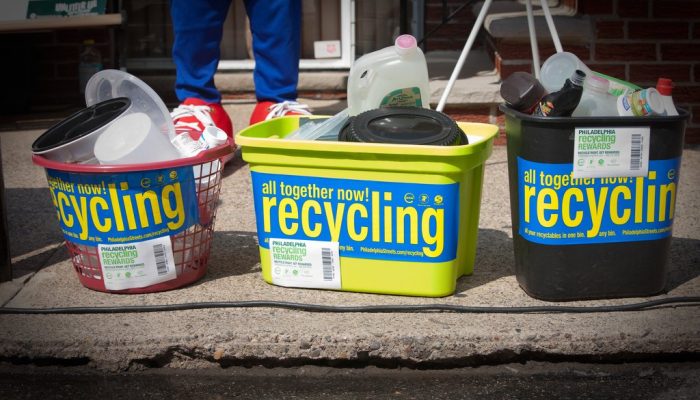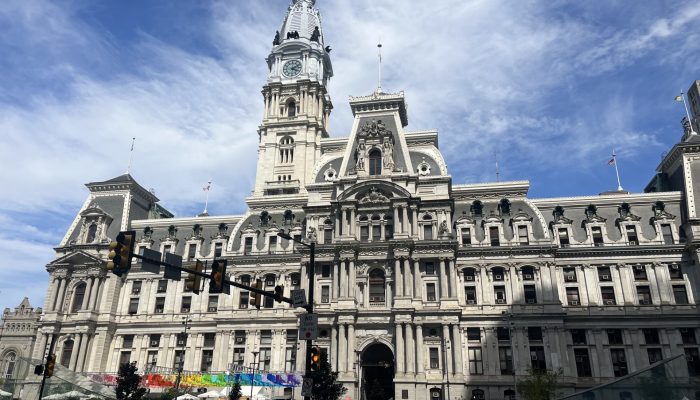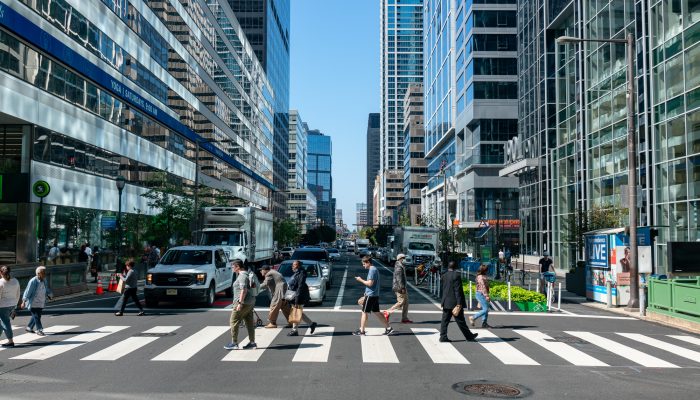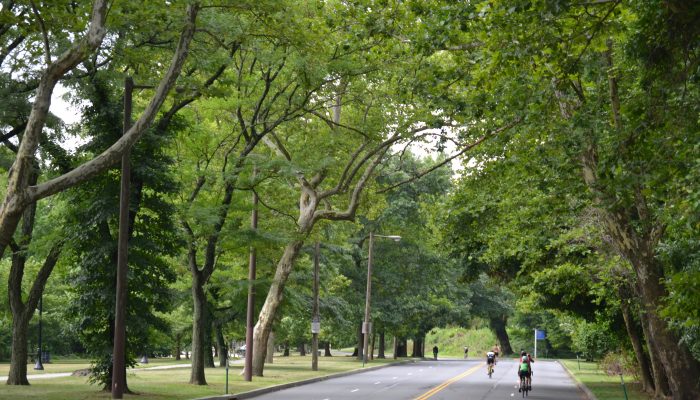As you may have seen in the news, Philadelphia’s recycling program and recycling programs across the country are facing challenges due to global changes. These changes have caused the City to make the decision to temporarily process half of its recyclable material at a waste-to-energy facility while negotiating a new contract for the City’s curbside collection.
Here’s how the City is addressing these challenges and how you can help contribute to Philadelphia’s recycling and Zero Waste goals in the face of this changing landscape.
Why is this happening?
The United States, which leads the world in exporting trash, has been sending a majority of our recycling (mostly plastic and mixed paper) to China. As China works to modernize its manufacturing and increase its sustainability, the country reduced the contamination threshold to 0.5%—a standard that no recycling processing facility in the United States is able to meet. For context, by industry standards Philadelphia has a fairly low contamination rate at 15-18%.
Waste management professionals across the globe agreed that this was an almost impossible threshold to meet, so the entire industry was turned on its head.
What is recycling contamination?
Much of the the recycling sent to China was contaminated, meaning it had plastic bags, food remnants, liquid, or miscellaneous items that made it impossible to recycle. So when this material finally got to China, most of it was either being sent to a landfill or burned.
Is incinerating recyclables a new development in waste management?
No. Much of Philadelphia’s and the nation’s contaminated recycling was being sent to landfills or incinerators for decades.
Why are we incinerating rather than finding another solution?
While negotiating our current recycling contract, we decided only to take recycling from areas of the city where we know recycling contamination is low, and it would be likely to be accepted for recycling. The rest of the city’s recycling, with high contamination rates, is taken to the Covanta waste-to-energy plant, which is where we send all of our trash.
Is waste-to-energy bad for the environment?
The Covanta plant is heavily regulated by the Environmental Protection Agency (EPA) to comply with national clean air regulations. We believe that this is a better solution to managing municipal solid waste than burying it in landfills, especially as we are limited in landfill space in the Philadelphia region.
What is the City doing in light of these market changes?
- Mayor Kenney created the Zero Waste and Litter Cabinet to develop strategies to reduce waste and promote a cleaner city. The cabinet is already focused on citywide composting and waste reduction, and the new contract will give Philadelphia the best options possible for recycling processing.
- The Streets Department is working closely with the cabinet to develop best practices for reducing contamination in the recycling stream and creating education and outreach programs to educate residents about how to recycle right.
Will the City return to 100% of recyclables being collected from curbside bins?
It is the City’s goal to traditionally recycle 100% of the recyclable material collected curbside. We anticipate sending a new recycling contract for Council approval in the spring.
Should I keep recycling?
Yes! Everyone needs to pitch in to ensure that our recycling is free from contamination.




